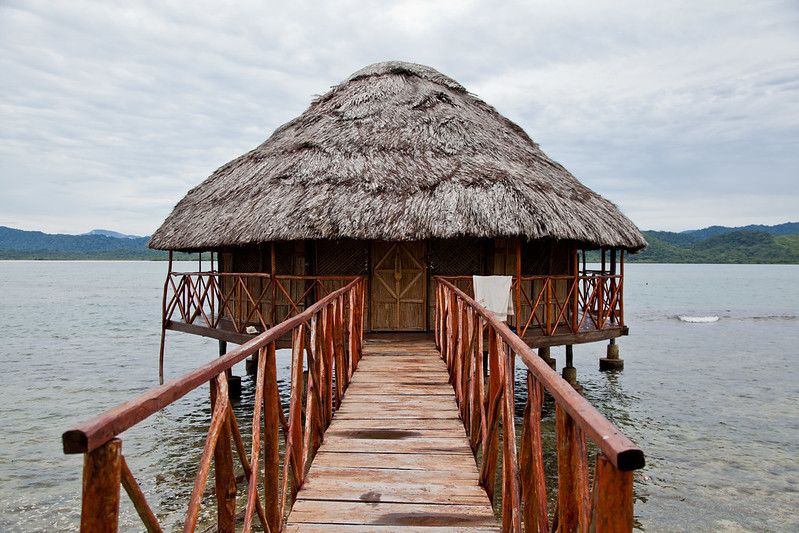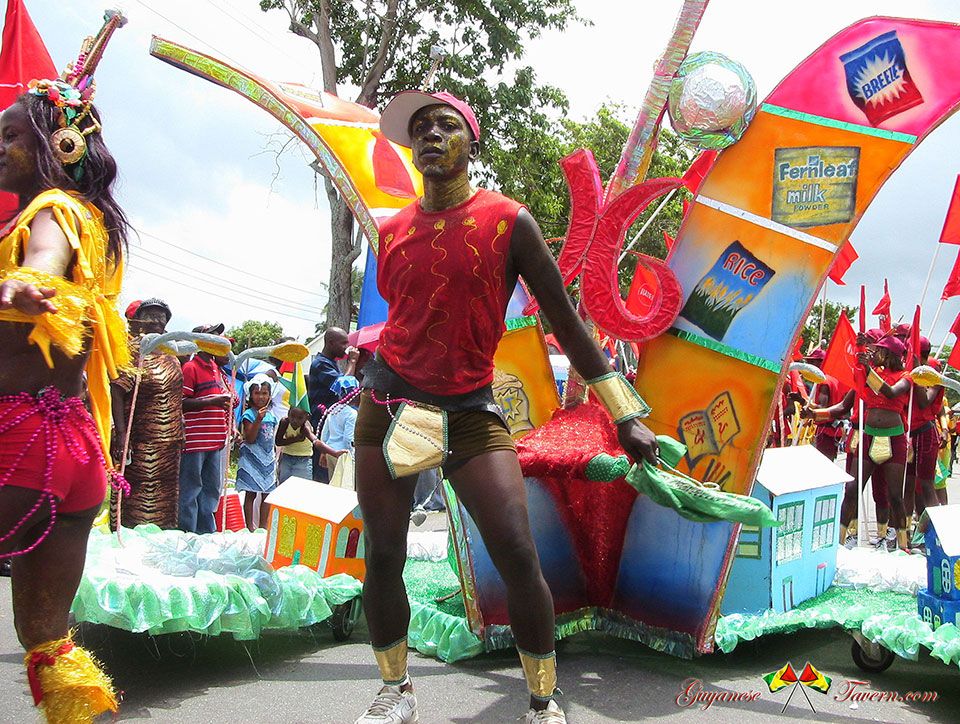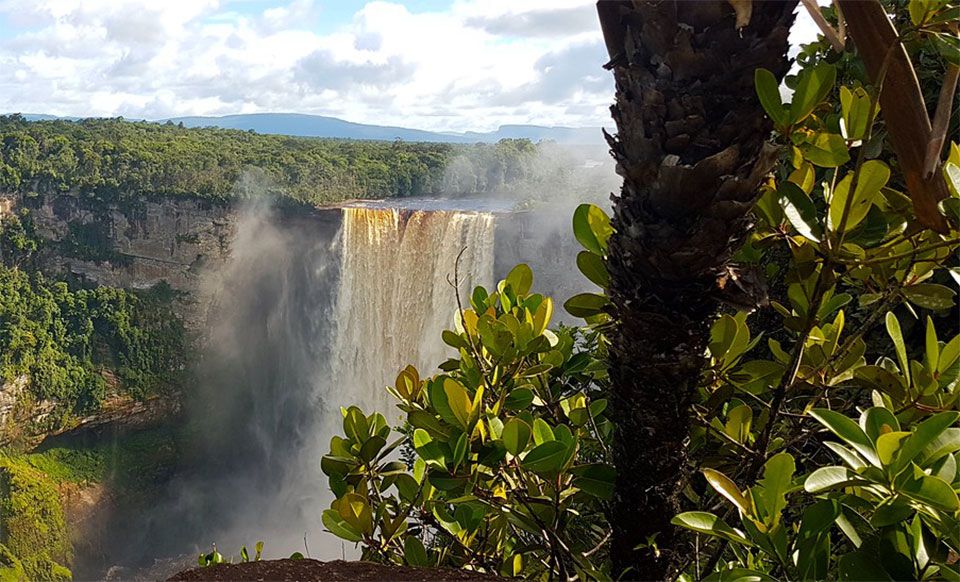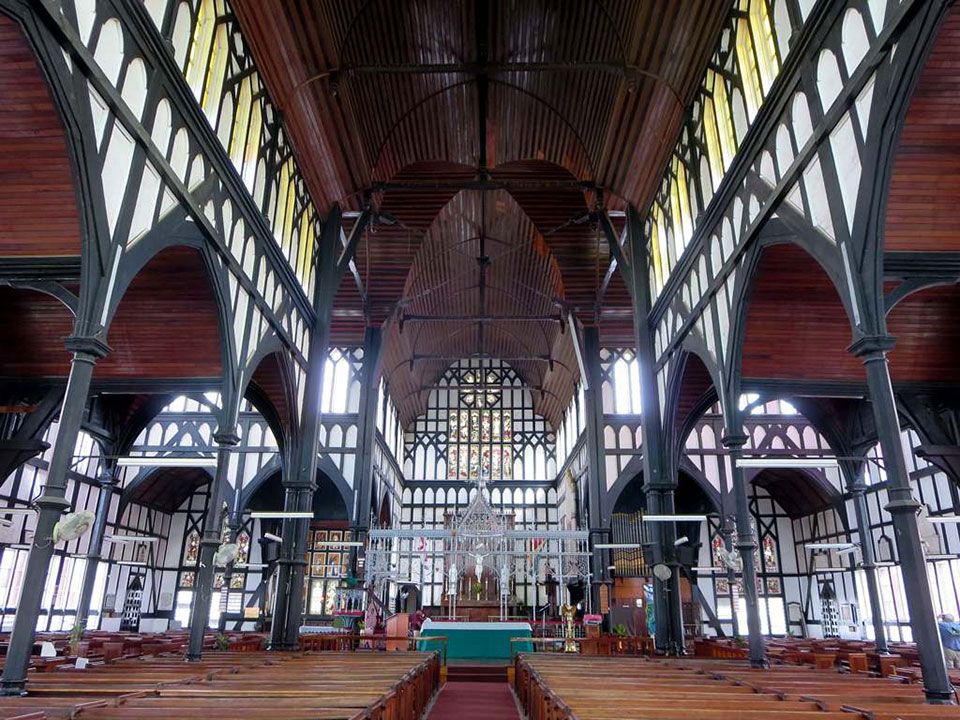Bhutan is a small country located in the Himalayas with a population of over 800,000. The kingdom is a global leader in environmentally sustainable development. Its social, economic, political and spiritual foundations are rooted in the idea of Gross National Happiness – equitable socio-economic development, preservation of culture, conservation of the environment and good governance.
The UNDP-UNEP Poverty-Environment Initiative in the country helps to ensure that environmentally sustainable considerations remain an integral part of the country’s national development plans.
“The program provides an ideal platform for creating enabling conditions for achieving poverty reduction and environmental sustainability,” says Lyonpo Dorji Wangdi, Minister of Labour and Human Resources.

Bhutan is an example of sustainable development
Bhutan is committed to carbon neutrality, and environmental considerations are implemented into its Constitution, including a requirement that the country preserves 60 percent of its land as a forest.
This small country is an example of sustainable socio-economic development in harmony with nature for the other countries.
Bhutan is one of the world’s happiest and greenest country. Tourists need a visa to explore this South Asian country unless you are from India, Bangladesh, or the Maldives. The visa costs $40 plus there is an additional $250 “Minimum Daily Package Fee” and it needs to be booked through an officially approved tour operator. This fee covers lodging in three-star accommodations, all meals, a licensed tour guide, camping and trekking equipment, domestic travel, and taxes and fees.
There is a $65 daily sustainable development fee which is included in the package. This fee helps funding education, healthcare, the building of infrastructure for the growing tourism.
World Wildlife Fund (WWF) is the country’s oldest conservation partner. Beginning in 1977 by supporting the capacity development of local conservation staff, the support gradually evolved into a full country program with several collaborative conservation projects. WWF Bhutan has been supporting the royal government and people of Bhutan in a number of conservation efforts to protect and conserve Bhutan’s natural capital and the immense biological diversity.
WWF Bhutan works on various environmental conservation programs including research and study, education and awareness, promotion of sustainable livelihoods, protection of terrestrial and freshwater ecosystems, and addressing human-wildlife conflict, illegal wildlife trade, and climate change.

“It was easier for us than say India or China, because we have only 20 people per sq. km. We have also had political commitment,” says Vijay Moktan, conservation director of the World Wildlife Fund (WWF), Bhutan.
The Bhutanese people’s love and respect for nature is part of their culture. Nature and biodiversity are not only a source of food and economic benefits in the kingdom but also important cultural and spiritual values.
The Biodiversity Finance Initiative (BIOFIN) is working with different government agencies and several other related initiatives to integrate biodiversity, climate change and poverty elements in the country and contribute to poverty reduction and social progress.
BIOFIN success in Bhutan demonstrates the connection in conservation with the happiness of the Bhutanese people in their mountain stronghold.
“Our integrated approach to financing across sectors to tackle large challenges we face in preserving our biodiversity, mitigating and adapting to climate change and poverty alleviation, we believe, maybe a beacon of good sustainable development practice to the rest of the world.” said Ngawang Gyeltshen, BIOFIN National Coordinator.”
It is the only country in the world that has a negative carbon, which means it produces more oxygen than it consumes. According to UNFCCC report, the kingdom generates about 2.2 million tonnes of carbon annually, yet its forests absorb three times this amount, which creates a carbon sink.
“In 2014, the government imposed a 100% tax on the import of foreign cars, and people are still buying them,” says one Thimphu taxi driver, complaining about the increased traffic. “Where once people were content to walk everywhere, they now want cars.”
The Bhutanese government has also tied up with Nissan and Mahindra Reva to push electric cars. And in a very ambitious move, the country plans to go zero waste 100% organic and maintain its green cover.
In April, 108,000 trees were planted to celebrate the birth of the new prince.
“A car for each family has become more a necessity than a luxury in Bhutan because undisputedly the public transport is not only unreliable and inefficient, it is also often expensive,” writes Sonam Tashi, a lecturer, in a letter to the local paper. “The people are paying for the government’s incompetence.”

Bhutan’s agricultural income is declining and can’t support the increasing population. The country is heavily dependent on imports — nearly 50% of its rice comes from India.
“The Himalayan ecosystem is very fragile. Water resources are critical for us—because our chief export is hydropower—and the only way to save water is to save the forests.”, says Namgyel, one of Bhutan’s negotiators at the Paris climate change agreement in December 2015.
Bhutan for Life, Brand Bhutan, and the Ecotourism program are just a few of the initiatives bringing interest to for tourists, investors, trading and development partners.
Want to learn more about Bhutan? Check our other posts about Bhutan.













 Photo credit: David Stanley /
Photo credit: David Stanley / 
